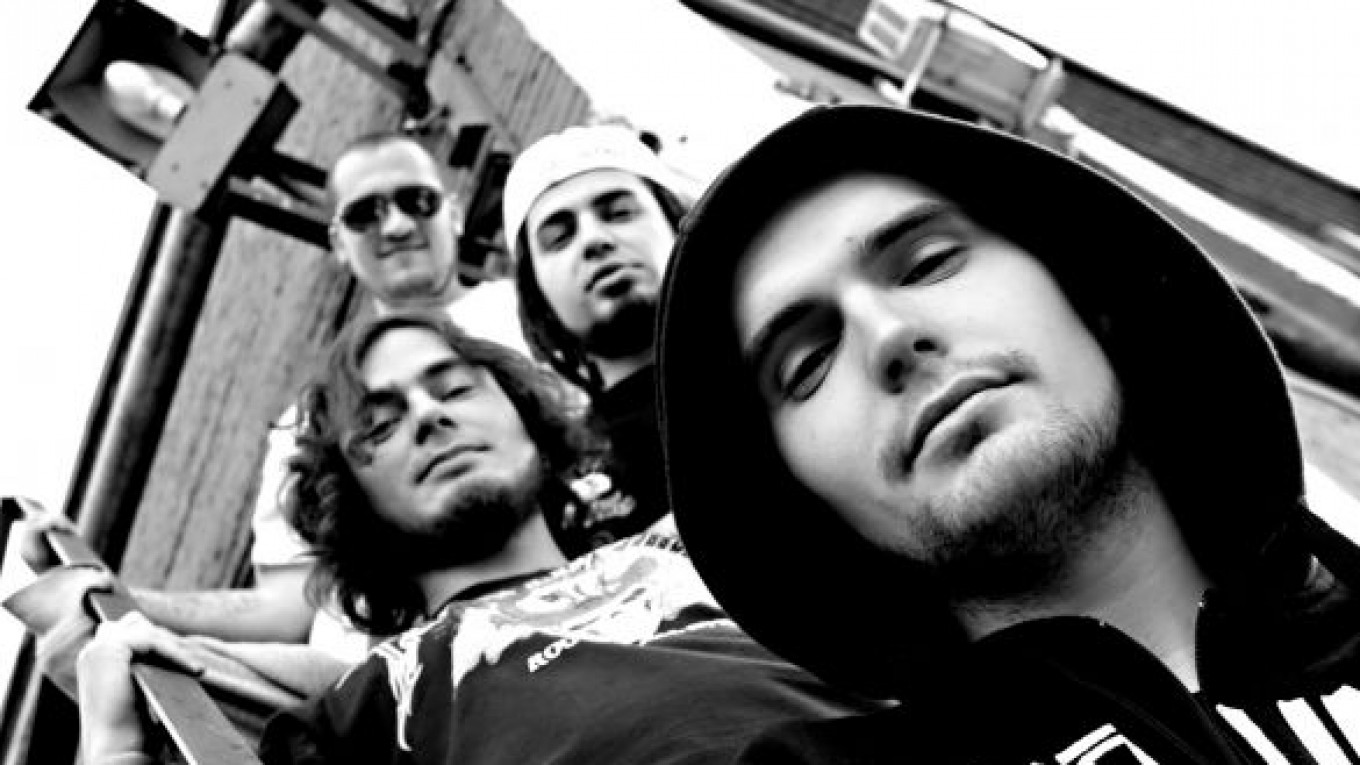Russian rap has shown its social conscience in recent weeks, highlighting how local performers are willing to deal with local problems rather than parade the babes and in-your-face oligarchic bling of the likes of Timati.
Following from rapper Noize MC’s song “Mercedes 666,” (see video embedded below) which damned LUKoil vice president Anatoly Barkov to hell after he was involved in a car crash that left two women dead, there comes Dino MC 47’s “Song About Explosions in the Metro,” which criticizes government elite for hypocrisy over the two bombings that killed 40 people late last month.
“Arrogant, overfed faces, with blue lights and security / telling us fr om TV that we won’t be threatened / their kids are in London and their money in the Caymans / what are we supposed to do? Wh ere do we hide?” Dino raps.
Dealing with such social issues may not have been what Prime Minister Vladimir Putin had in mind when he appeared on a rap music television program last November wh ere he praised rap’s social importance in “talking about the problems of society, the problems of youth.” He also praised break dancing for helping “fight against drugs.”
“Hip hop, in Russia or the West, does not expose government secrets, but it does talk about real issues, which always attracts people,” said Andrei Nikitin, editor-in-chief of Rap.ru, Russia’s premier rap and hip- hop web site.
“Everyone became too relaxed. There was a feeling that everything is all right, that the brave government is concerned about us. In reality, it’s not like that. Turns out, we’ve been told a lie the whole time,” Dino said on Ekho Moskvy radio.
Seminal rap performers in the 1990s — such as Kasta, from Rostov-on-Don, and Y.G., from southern Moscow — grew in popularity by rapping about local and social issues.
“Social and political issues have been a growing tendency for hip-hop artists,” said Noize MC, whose given name is Ivan Alexeyev. He dismissed Putin’s appearance as a PR stunt.
Rappers have tackled topics ranging from a lack of food in grocery stores after the fall of the Soviet Union to poor living conditions, drug addiction and social unrest.
“Hands behind your back, face in the mud, down lower than crud / your reward — a two-year cruise,” Kasta raps in a track about the harsh realities of Russia’s mandatory military service for men.
Although more successful than acts in the 1990s, rappers such as Noize, Kasta, Basta and Dino struggle for media attention from major television and radio networks, which frequently opt to play the artists’ Western counterparts.
The fame of “Mercedes 666” — with Noize MC singing “Miserable mob, shiver with fear / a patrician is coming your way … We’re late to hell today / so get out of the chariot’s way” — only came virally after fans made a video that plastered Barkov’s face onto a South Park video. Even relatively independent radio station Ekho Moskvy banned the song after one play.
“Only about 1 percent of what’s out there gets played on TV and radio. Internet is the main hip-hop gateway for Russian artists — social networks,” Nikitin said.
Alexeyev believes, though, that the genre’s underground days are long gone and that songs with social issues will appear more and more in the mainstream media.
“We have a strong movement on the rise,” he said, adding that this explains why Putin appeared on the rap music program. “As an influence on younger generations, it is extremely interesting for our government — which has apparently decided to set up a monarchy.”
Noize MC's "Mercedes 666":
A Message from The Moscow Times:
Dear readers,
We are facing unprecedented challenges. Russia's Prosecutor General's Office has designated The Moscow Times as an "undesirable" organization, criminalizing our work and putting our staff at risk of prosecution. This follows our earlier unjust labeling as a "foreign agent."
These actions are direct attempts to silence independent journalism in Russia. The authorities claim our work "discredits the decisions of the Russian leadership." We see things differently: we strive to provide accurate, unbiased reporting on Russia.
We, the journalists of The Moscow Times, refuse to be silenced. But to continue our work, we need your help.
Your support, no matter how small, makes a world of difference. If you can, please support us monthly starting from just $2. It's quick to set up, and every contribution makes a significant impact.
By supporting The Moscow Times, you're defending open, independent journalism in the face of repression. Thank you for standing with us.
Remind me later.


